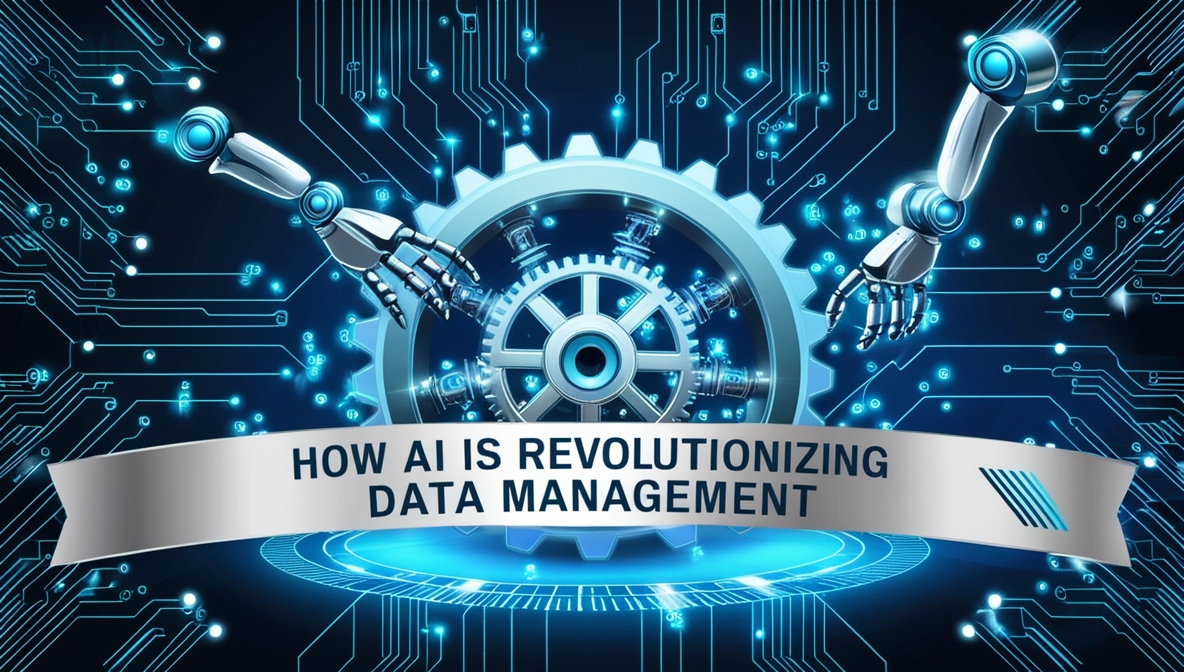How AI is Revolutionizing Data Management
Artificial Intelligence (AI) is transforming various industries, and data management is no exception. The integration of AI technologies into data management systems is enhancing efficiency, accuracy, and decision-making. This article explores how AI is revolutionizing data management and what it means for businesses and individuals.
Enhancing Data Accuracy with AI
Automated Data Cleaning
One of the most time-consuming tasks in data management is cleaning and preparing data. AI-powered tools can automate this process by:
- Identifying Errors: AI algorithms can detect inconsistencies, duplicates, and inaccuracies in datasets with high precision.
- Correcting Errors: Automated systems can correct data entry mistakes, standardize formats, and fill in missing values, reducing the need for manual intervention.
Improved Data Validation
AI enhances data validation by:
- Pattern Recognition: AI models can recognize patterns and anomalies in data that might be missed by traditional methods.
- Predictive Analysis: By analyzing historical data, AI can predict and prevent potential data issues before they impact operations.
Streamlining Data Integration
Seamless Data Integration
Integrating data from various sources can be complex and prone to errors. AI simplifies this by:
- Data Mapping: AI tools can automatically map and harmonize data from different sources, ensuring consistency across systems.
- Real-Time Integration: AI enables real-time data integration, allowing businesses to access and utilize up-to-date information seamlessly.
Enhancing Data Interoperability
AI enhances data interoperability by:
- Semantic Analysis: AI can understand and interpret data semantics, facilitating smoother interactions between different data systems and formats.
- Natural Language Processing (NLP): NLP enables AI to interpret and integrate unstructured data, such as text and speech, into structured databases.
Advanced Data Analytics with AI
Predictive Analytics
AI-driven predictive analytics allow businesses to:
- Forecast Trends: By analyzing historical data, AI can forecast future trends, helping businesses make informed decisions and strategize effectively.
- Risk Management: Predictive models can identify potential risks and suggest mitigation strategies based on data patterns.
Real-Time Analytics
AI enhances real-time data analytics by:
- Processing Speed: AI algorithms can process large volumes of data quickly, providing instant insights and actionable information.
- Dynamic Dashboards: AI-powered dashboards offer real-time updates and visualizations, enabling faster and more informed decision-making.
Automating Data Management Processes
AI-Powered Automation
AI automates various data management tasks, including:
- Data Entry: Automated data entry systems reduce manual input errors and increase processing speed.
- Data Categorization: AI can categorize and tag data based on predefined criteria, streamlining data organization and retrieval.
Workflow Optimization
AI optimizes workflows by:
- Task Automation: AI can automate repetitive tasks, freeing up human resources for more strategic activities.
- Process Optimization: AI analyzes workflows and suggests improvements to enhance efficiency and reduce bottlenecks.
Enhancing Data Security with AI
Threat Detection and Prevention
AI improves data security by:
- Anomaly Detection: AI algorithms can detect unusual patterns and behaviors that may indicate security breaches or fraud.
- Automated Response: AI systems can automatically respond to potential threats, such as blocking suspicious activities or alerting security teams.
Data Encryption
AI enhances data encryption by:
- Adaptive Encryption: AI can adjust encryption protocols based on data sensitivity and access patterns, ensuring robust security measures.
- Real-Time Monitoring: AI monitors data access and encryption status in real-time, ensuring compliance with security policies and regulations.
In addition to AI-enhanced security measures, businesses can follow essential data security tips, such as regularly updating encryption protocols and implementing multi-factor authentication.
AI in Data Management: Challenges and Considerations
Data Privacy Concerns
While AI enhances data management, it also raises data privacy concerns:
- Data Usage: Businesses must ensure that AI systems handle personal data responsibly and comply with data protection regulations.
- Transparency: It’s essential to maintain transparency about how AI systems use and process data to build trust with users.
Bias and Fairness
AI systems can inadvertently introduce biases into data management:
- Algorithmic Bias: AI models may reflect biases present in the training data, leading to unfair outcomes.
- Mitigation Strategies: Implementing strategies to detect and mitigate biases in AI algorithms is crucial for ensuring fairness and accuracy.
The Future of AI in Data Management
The future of AI in data management looks promising, with ongoing advancements expected to:
- Enhance Automation: Continued innovation will lead to more sophisticated automation tools, further streamlining data management processes.
- Improve Decision-Making: AI will provide deeper insights and more accurate predictions, aiding strategic decision-making.
- Expand Applications: AI’s applications in data management will continue to grow, offering new solutions and capabilities for businesses and individuals.
As AI continues to evolve, the future of data storage will see innovations that make storing and managing vast amounts of data more efficient, secure, and accessible.
Conclusion
AI is revolutionizing data management by enhancing accuracy, streamlining processes, and providing advanced analytics. As technology continues to evolve, AI will play an increasingly central role in managing and leveraging data, offering significant benefits for businesses and individuals alike.












Post Comment